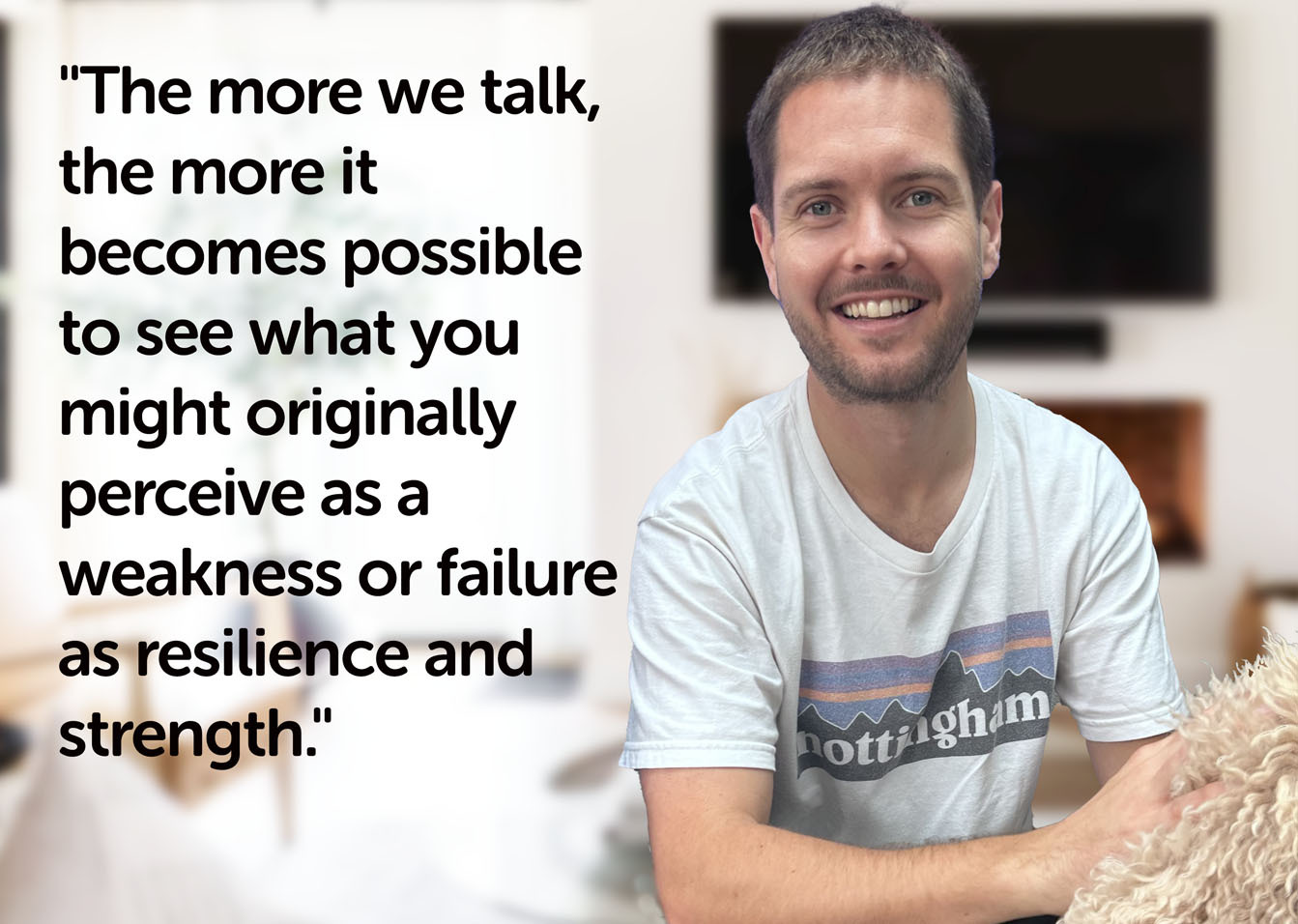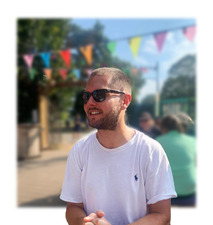"My 'weaknesses' are my greatest strength"

Imagine going into five interviews and telling the interview panel quite openly that you’d had a breakdown and were still undergoing therapy. You weren’t quite sure how long you might need to work part-time, but it was cards on the table time. What do you imagine the outcome of those interviews might be?
One of the things I have learnt from my mental health journey is how important language is. When people talk about mental health, it’s very easy to slip into negative language, such as “suffering”, “victim”, or “weakness”. And how you describe something often defines how you feel about it.
I’ve worked with therapists in the past who have talked to me about how important it is to change my vocabulary. But the other thing I’ve learnt is that sometimes you need to experience seeing your supposed “weaknesses” as your greatest strength before the change in language (and feelings) follow.
I am a survivor of childhood sexual abuse trauma.
'To the outside world I appeared to be functioning as any other person'
I didn’t understand it to be abuse at the time, but went through my early childhood with various ailments - severe migraines, night terrors, fainting episodes and hallucinations. As I got older, these symptoms calmed down but I began to experience vivid flashbacks of the abuse I had suffered as a three year old.
To the outside world I appeared to be functioning as any other person, but the truth was I was trying to push these flashbacks away. Sometimes they would reappear as panic attacks that again I managed to suppress and go about my life as if nothing was wrong.
From school to university and then to my journey to become a chartered surveyor through the APC process, I always felt like I had something to focus on; a goal to achieve. Once I successfully became chartered, however, it was almost like I had nothing else to focus on, and my mind instead focused on understanding the images that I had been suppressing all these years.
After managing to open up to some friends, I eventually found myself in front of a health professional for the first time having an assessment to see whether I was suitable for treatment for PTSD.
'I could not wait any longer for help'
After a quite gruelling hour, I was informed that I was suitable for treatment, but that I now would be on a waiting list of somewhere between 1-2 years. The news triggered a nervous breakdown; I felt lost and unable to cope with the wait. I felt like I’d already been waiting 25 years for help, and I could not wait any longer.
I ended up taking sick leave from my surveying role and began accessing mental health support privately, as I recognised alongside my family that I needed proper support straight away.
health support privately, as I recognised alongside my family that I needed proper support straight away.
While I prioritised resting and focusing on my health, I also began to volunteer at a local sports club to try and give myself a sense of purpose. After three months of sick leave, it became obvious to me that I needed to return to work - I was now spending a lot of money each week on psychotherapy and was approaching my full sick leave allowance within my contract at work, so would soon only be compensated with statutory sick leave.
I returned to work on a part time basis, working three days a week and at a much reduced capacity compared to my role before my breakdown.
Many of my friends and family members had been convinced that returning to work would be good for my recovery, and I was encouraged to think the same.
'The work environment simply made my own story feel like a failure'
However, I found that I was struggling to cope with the surroundings in my new state of mind. The exciting, growing and competitive firm that I had been working at for five years now felt daunting, intimidating and too competitive.
Whilst I was being supported in my recovery by being allowed to work at a reduced capacity, I found the environment of promotions and celebrations of individual success stories simply made my own story feel like a failure.
I decided that I needed to find a new company where I could better aid my recovery. I was still in a poor state of mental health, so waited several months before I felt ready to interview again. As soon as I felt able to, I began to put myself out there.
I’d always felt that I needed to put my “best foot forward" in interviews - to concentrate on all my positives, what I could bring to the company, and where I saw myself in 1, 2 and 5 years’ time.
This time, however, I went completely with the opposite approach. It may have been a gamble, but I went into these interviews with honesty about my situation: I was ill. I was chartered but I was currently working at an assistant level. I was having weekly therapy sessions and only felt able to work 3 days a week - I had no idea how much longer I would need to work at this level, but I needed a company that would enable me to work at my own pace while I recovered.
'Talking about my biggest weaknesses at interview turned out to be my greatest strength'
In all honesty, I felt like I had nothing to lose, but what happened next surprised me.
I went for 5 interviews, and received 3 call-backs for a further interview and 2 job offers. I couldn’t believe that talking about what felt like my biggest weaknesses and failures turned out to be my greatest strength - these companies saw honesty, integrity and potential that I could not see in myself at the time.
It takes courage to talk about things that are hard. It probably takes courage to listen to someone, too. But the more we listen and the more we talk, the more it becomes possible to see what you might originally perceive as a weakness or failure as resilience and strength.
I now volunteer as an ambassador for LionHeart. LionHeart provided me with incredible support at the most difficult time of my life, and I have always been extremely grateful. I am now in a position to give back, and I am excited to be able to use my experiences to help others - whether that is through helping them with their APC or by providing support with their mental health. I want to encourage more open dialogue and create safer environments so that everyone has an opportunity to thrive within the surveying industry.
Adam Henderson began his Quantity Surveying career in 2012 and has gone on to work in a variety of sectors including residential, commercial, arts and culture, and data centres, becoming chartered in 2018.

